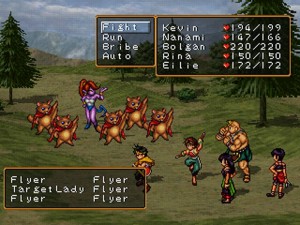Is Simplicity Overrated?
Posted by Rampant Coyote on September 16, 2014
 I have a quote from Antoine de Saint-Exupéry that hangs above my desk. I use it as a reminder – because I constantly need reminding. It says, “Perfection is achieved, not when there is nothing more to add, but when there is nothing left to take away.”
I have a quote from Antoine de Saint-Exupéry that hangs above my desk. I use it as a reminder – because I constantly need reminding. It says, “Perfection is achieved, not when there is nothing more to add, but when there is nothing left to take away.”
I have a number of favorite quotes generally attributed to Albert Einstein. One of them goes, “Everything should be made as simple as possible, but not simpler.”
These serve to remind me that a reasonable level of simplicity is a virtue. As I have a tendency to make things more complicated just to hold my own interest (like the guy who invented, “Rock, Paper, Scissors, Lizard, Spock“). This tendency gets me in trouble sometimes. I rail against “kitchen sink design” (the kind of design where you throw in “everything but the kitchen sink” in terms of ideas and features) because it’s something I struggle with personally.
But – while there’s a very huge domain of possible games out there that can be made using very simple mechanics, it should be obvious that there are several orders of magnitude more game possibilities when you combine two or more of those simple mechanics together. But this increases complexity, especially as the number of potential interactions between the systems increase. This is a fascinating challenge of game design in itself – how do you limit or facilitate these interactions in a way that keeps complexity reasonable for your target audience?
Anyway, all this is really an introduction to a fascinating piece by Craig Stern, “Against the Cult of Simplicity.” He makes a ton of arguments (he’s a lawyer by day, so he’s good at this) that while simplicity may be a virtue, it is not the only virtue. It seems that the indie community is perhaps getting pushed too far in that direction. While it may be a good thing to correct some poor tendencies, what we’re really going for is a balance. Simplicity is not the end-goal for many (or even most) games.
 It’s something of a companion piece to his earlier article at indieRPGs.com, “Where are all the RPGs at IGF?” This article illustrated another bias against more complex games – simpler games are faster and easier to “get,” which makes them more likely to get a fair shake from harried judges at these shows. If a game even sounds like it’s going to take more than ten minutes to evaluate, many judges won’t bother even looking at it.
It’s something of a companion piece to his earlier article at indieRPGs.com, “Where are all the RPGs at IGF?” This article illustrated another bias against more complex games – simpler games are faster and easier to “get,” which makes them more likely to get a fair shake from harried judges at these shows. If a game even sounds like it’s going to take more than ten minutes to evaluate, many judges won’t bother even looking at it.
Much of the challenge and delight (I like using that word – it isn’t exactly the same thing as “fun,” but it can encapsulate fun, fascination, admiration, and many other factors) of RPGs is in the interaction of these systems. Even in relatively simple RPGs (think 16-bit-style JRPGs), these systems can get really complex, balancing combat, exploration, some skills, leveling, gear, and expendable items (which represent a cost in gold, replenished through combat and exploration). But this is something that can’t be fully introduced to a player in five or ten minutes. You can touch on it, but it’s still a lot for a player to absorb, let alone gain any kind of mastery.
I think I’m in complete agreement with Craig, here. I believe that the quote attributed to Einstein (whether or not he really said it, it’s a good one) should be applied on a per-game basis, not to games in general. Extremely simple games are awesome, and can be both critically and commercially successful (Flappy Bird, anyone?). But that’s not the be-all, end-all goal of game design.
Filed Under: Design - Comments: 8 Comments to Read
Felipe Pepe said,
I think there are many ways to be simple.
Take for example, Star Control 2. The game is very intuitive, quick to understand, entirely controlled by only two buttons + arrow keys and it’s both friendly and charismatic.
Yet it offers more content and complexity underneath it than many full fledged AAA titles today. The “simple” games stop at the first part, they don’t fully explore even their own few, simple mechanics.
Tesh said,
I like how Mark Rosewater of MTG design fame expressed similar sentiments. He strives for “elegance”, which contains some simplicity, but only inasmuch as it facilitates the design ideas. The axis of complexity/simplicity is just one facet of design, and elegance has more to do with how different parts of design fit together and compliment each other. Sometimes that’s simple, sometimes it’s masterfully complex.
Mark said,
One of the biggest games of the year is Super Smash Bros, designed by the famously maximalist Masahiro Sakurai. With him, everything is intuitive and approachable, but never simple. There are always more mechanics and they’re always more detailed.
McTeddy said,
I think it’s crazy that people claim there is “Good” or “Bad” in game design.
Everything is relative to the player’s needs and expectations. Old-school RPG players can appreciate text and learning curve… while bro gamer’s can’t read or learn.
Designing a game for either demographics is absolutely a good idea. But each one needs to be made differently.
Simplicity isn’t good or bad… its just has the tags “Good for attracting casual players” and “Easy to pick up”.
Rampant Coyote said,
Oh, I totally think there’s “good” and “bad” in game design. Call me crazy, dude. 🙂 But you are right in that there’s a lot more gray area and subjectivity involved than some people (especially those of less experience & range of familiarity) give it credit for.
I mean – take Super Meat Boy. Favorite example for me. I’m not a big fan of these kinds of games. I’m really not. The whole concept left me cold, and I only bought it because I figured something making that much impact on the indie gaming scene (and with so much mainstream attention) ought to be checked out.
And you know what? I had fun playing it. No, I didn’t play it to completion, or even play it for hours and hours. But I did find myself playing “just one more level” much longer than I expected. And there were some things they did that I believe were objectively excellent. Maybe not universal in their appeal, but you can break down the mechanics and the progression and see that Team Meat *really* knew their stuff.
That doesn’t mean that they created the end of the evolutionary cycle for their genre or anything. There were plenty of design decisions they made that could have gone several ways and made several excellent games. That’s the subjective aspect. But once you get down into the weeds, they executed well.
Of course, that’s the advantage of relative simplicity. They *could* totally master their genre and polish their mechanics to a ridiculous shine. That’s much harder with a more complex game like an RPG.
McTeddy said,
Crazy dude!
I agree that Super Meat Boy was a fantastic game and well designed even if I personally don’t enjoy it. It did a great job of making a game that’s hardcore… but inviting.
Everything from the silly graphics, short levels and lack of any “Game Over” message to the ending video of all your deaths worked for the same cause.
They wanted you to keep moving fast and not to get discouraged. They were a success.
But what about Dark Souls? In many ways it was the exact opposite. Death had major consequences, slow moving, realistic dreary graphics , forced you to replay long sections…
They wanted you to fear death and feel the dread and hopelessness that the NPCs talk about. Also a success.
Dark Souls: 89 metacritic (8.3 player)
Super Meat Boy 90 MC (8.1 Player)
Same goes for “Star Fox vs. IL-2 Sturmovik” or “Mario RPG vs. (Some complicated RPG) ” or even “X-Com: UFO Defense Vs. X-Com UFO Defense”
A great aspect of one game can hurt another. There is no “Right or Wrong” mechanics… but only “Right or Wrong for this project/Audience”
At least that’s MY opinion.
FuzzyDuck81 said,
I Guess i’m more in favour of “simple but deep” – simple basic mechanics to play with, but having them able to be employed in complex & interesting ways if you choose to… for me, the most recent example is probably Divinity Original Sin, where the basic mechanics are pretty straightforward & logical, but you can combine them in interesting ways.. or in the case of, eg the crafting system ignore them completely.
Anon said,
“Dark Souls” was a success because its hard (but fair!) difficulty level is an *exception* nowadays. It was downright HYPED as such and everybody and their grandpas hopped on the hype train just as everybody seems to try out “Depression Quest” right now.
Sometimes success is deserved because of hard, diligent and competent workmanship and sometimes it simply falls into your lap because you fill a void.